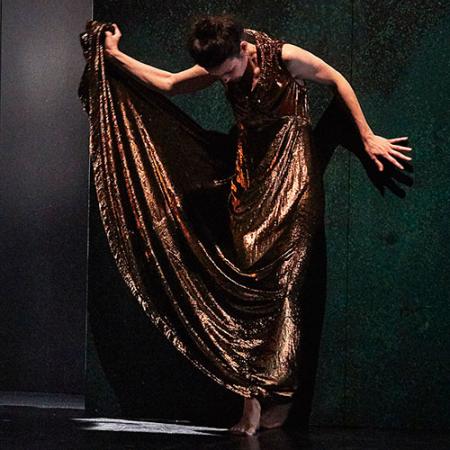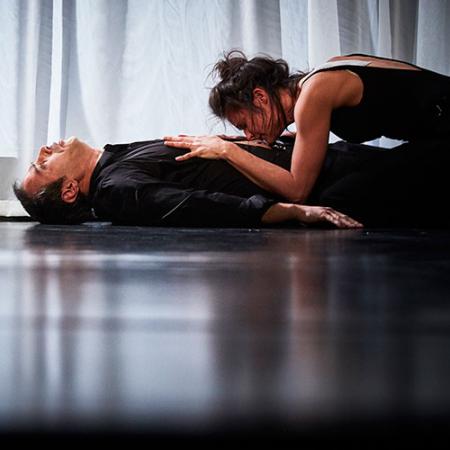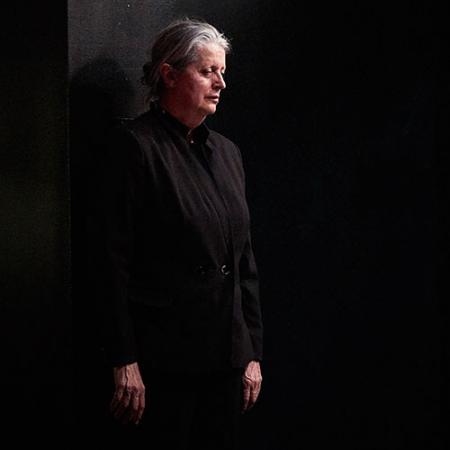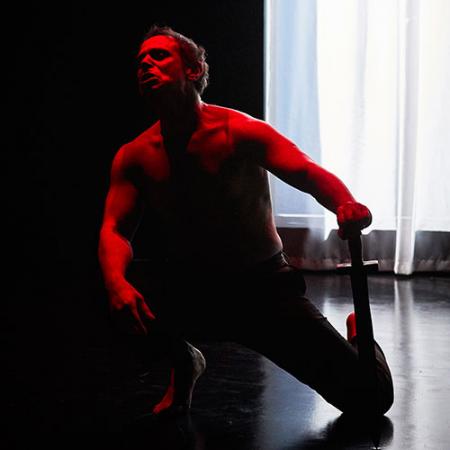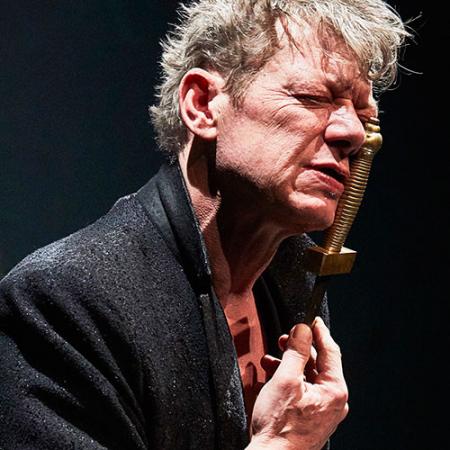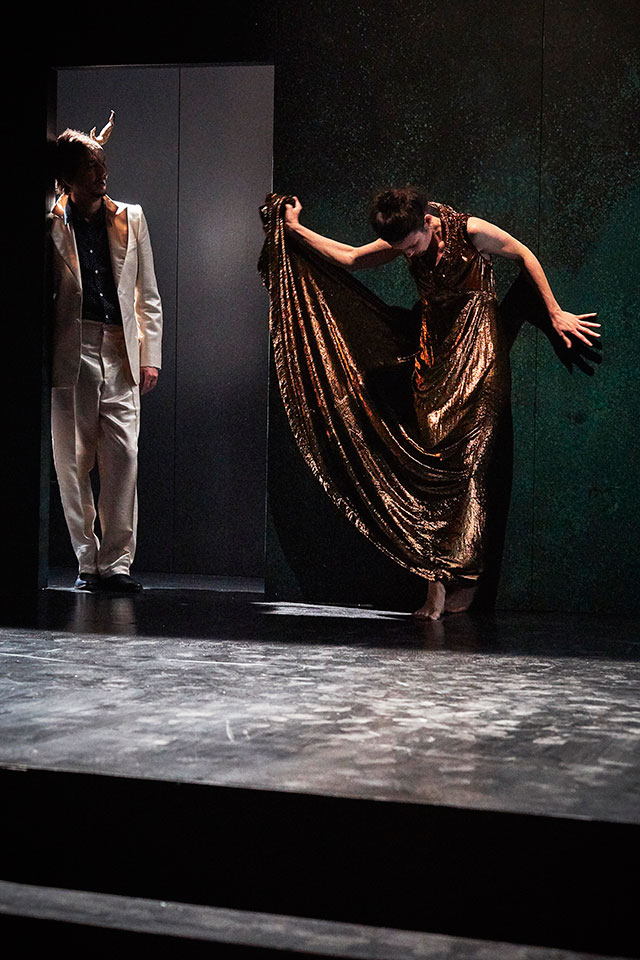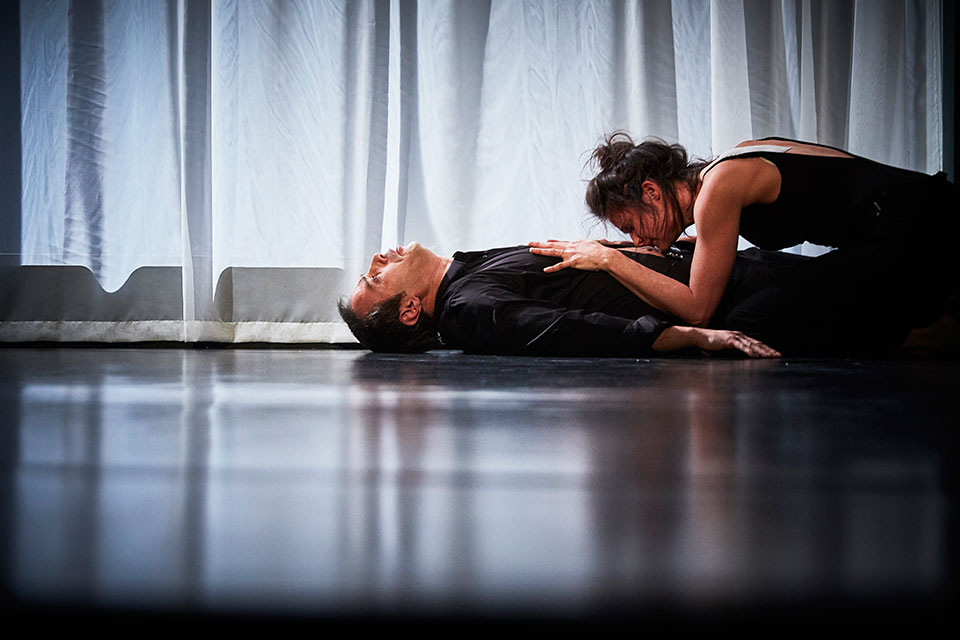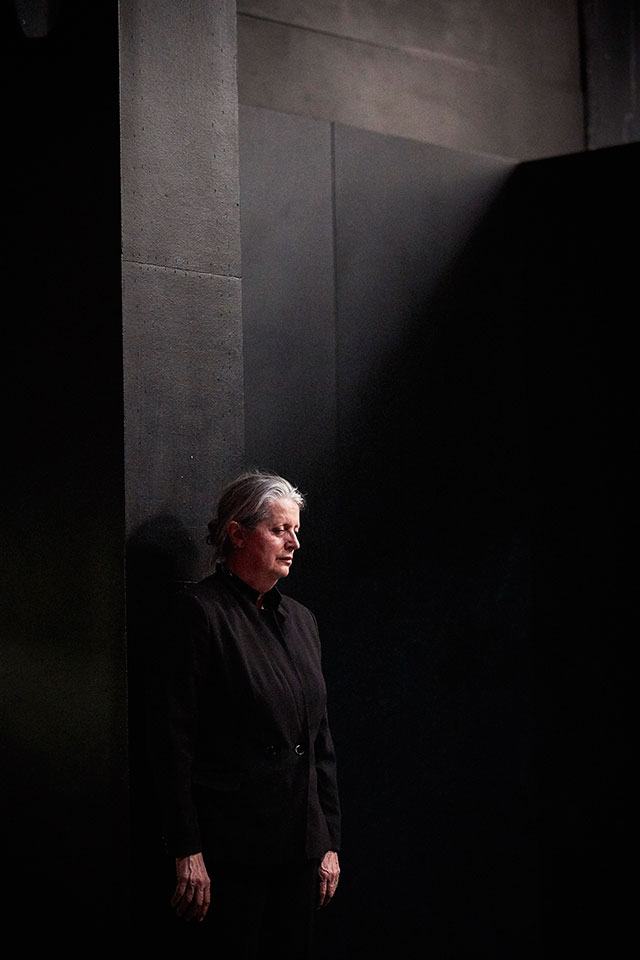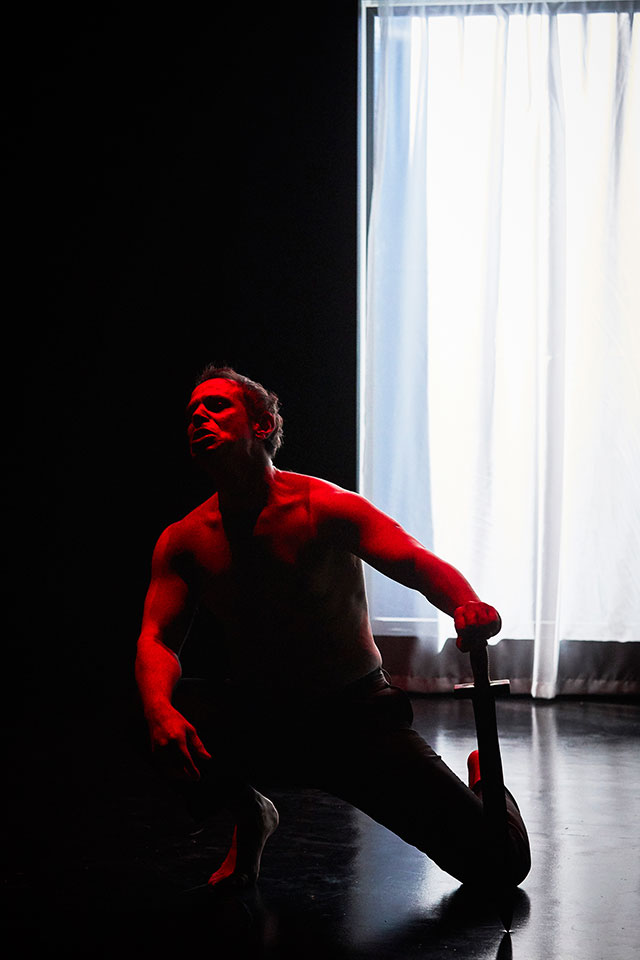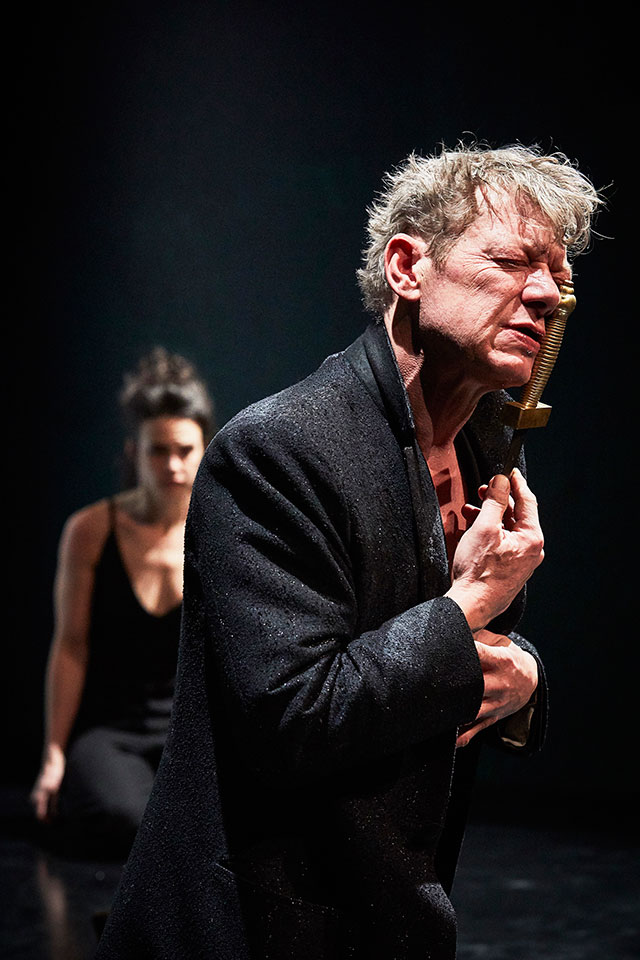Phèdre
by Sénèque
Directed by Louise Vignaud
Studio
Studio
Phèdre
2018-03-29 18:30:00 2018-05-13 18:30:00
Also known under the title of Hippolytus, Seneca’s Phaedra has never been staged at the Comédie-Française, contrary to Racine’s version, which is better known to audiences. In (re)discovering it, one is struck by the harsh language, which seems to be the primary architecture of a work chiselled by classicism.
For this production, Louise Vignaud has chosen the translation by Florence Dupont, which brings Seneca’s modernity to the fore by accentuating the friction between the ancient world and the present. A Roman tragedy, this Phaedra places the gods in the background to focus on human woes. Theseus, soon to return from the underworld, is a hero of another time. For the director, Phaedra and Hippolytus are two children who have grown old too quickly, prisoners of a palace where the world reaches them only as a distant rumour: “the story as it is told is that of a final act of defiance, a cry before a chasm, before an ancient world that takes refuge in disembodied myths and values, and in doing so locks away, shackles and slowly kills all those whose blood boils and revolts. Phaedra is a passionate creature whose life as a woman has been stolen from her and who decides to take control of her destiny.”
Louise Vignaud, the new artistic director of the Théâtre des Clochards Célestes in Lyon, an essential stage for young creation, and an associate artist at the Théâtre national populaire de Villeurbanne, is an adept of team-based theatre, conceived as a space for learning. Staging Seneca today “means letting oneself be caught up in a frenzy that changes our own, and whose poetry and rhythm unsettle our relationship to time.”
1h20 (without intermission)

Creative team
Staging: Louise Vignaud
Scenography: Irène Vignaud
Lights: Luc Michel
Costumes: Cindy Lombardi
Sounds: Lola Etiève
Dramaturgy: Pauline Noblecourt
Translation: Florence Dupont
Distribution
the company
-

-

-

-

Nâzim
BoudjenahHippolyte
-

Calendar
-
2018-04-11 18:30:00
2018-04-11 18:30:00
de 12 à 23 €
-
2018-04-12 18:30:00
2018-04-12 18:30:00
de 12 à 23 €
-
2018-04-13 18:30:00
2018-04-13 18:30:00
de 12 à 23 €
-
2018-04-14 18:30:00
2018-04-14 18:30:00
de 12 à 23 €
-
2018-04-15 18:30:00
2018-04-15 18:30:00
de 12 à 23 €
-
2018-04-18 18:30:00
2018-04-18 18:30:00
de 12 à 23 €
-
2018-04-19 18:30:00
2018-04-19 18:30:00
de 12 à 23 €
-
2018-04-20 18:30:00
2018-04-20 18:30:00
de 12 à 23 €
-
2018-04-21 18:30:00
2018-04-21 18:30:00
de 12 à 23 €
-
2018-04-22 18:30:00
2018-04-22 18:30:00
de 12 à 23 €
-
2018-04-25 18:30:00
2018-04-25 18:30:00
de 12 à 23 €
-
2018-04-26 18:30:00
2018-04-26 18:30:00
de 12 à 23 €
-
2018-04-27 18:30:00
2018-04-27 18:30:00
de 12 à 23 €
-
2018-04-28 18:30:00
2018-04-28 18:30:00
de 12 à 23 €
-
2018-04-29 18:30:00
2018-04-29 18:30:00
de 12 à 23 €
-
2018-05-02 18:30:00
2018-05-02 18:30:00
de 12 à 23 €
-
2018-05-03 18:30:00
2018-05-03 18:30:00
de 12 à 23 €
-
2018-05-04 18:30:00
2018-05-04 18:30:00
de 12 à 23 €
-
2018-05-05 18:30:00
2018-05-05 18:30:00
de 12 à 23 €
-
2018-05-06 18:30:00
2018-05-06 18:30:00
de 12 à 23 €
-
2018-05-09 18:30:00
2018-05-09 18:30:00
de 12 à 23 €
-
2018-05-10 18:30:00
2018-05-10 18:30:00
de 12 à 23 €
-
2018-05-11 18:30:00
2018-05-11 18:30:00
de 12 à 23 €
-
2018-05-12 18:30:00
2018-05-12 18:30:00
de 12 à 23 €
-
2018-05-13 18:30:00
2018-05-13 18:30:00
de 12 à 23 €

